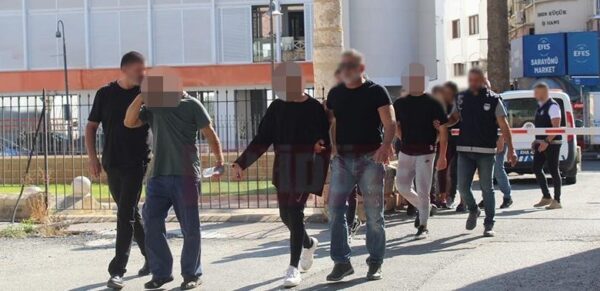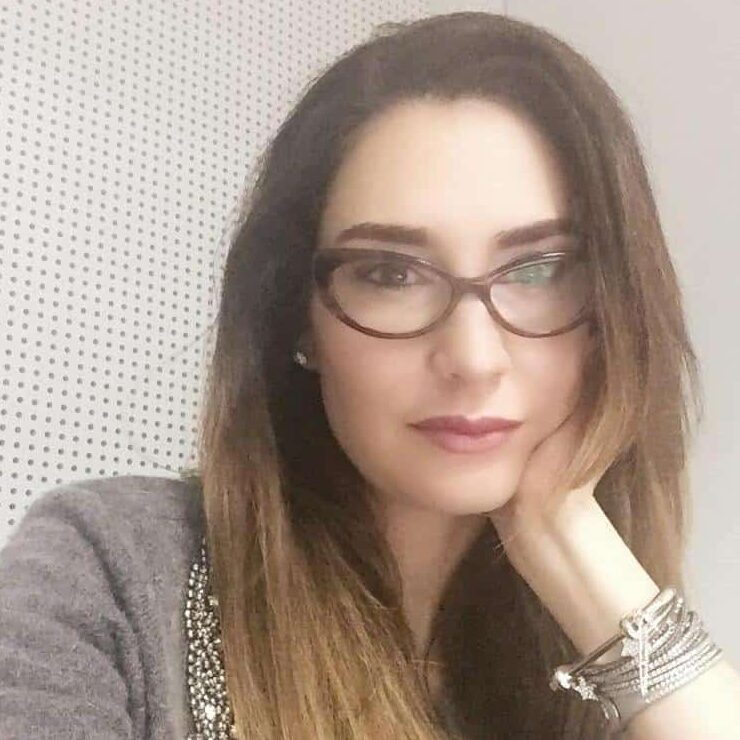One doctor wrote 7,800 prescriptions in a month
The ongoing investigation into the “fake prescription” scandal in the northern part of Cyprus has shaken Turkish Cypriots as they witnessed respected doctors and pharmacists – including former officials – arrested and brought to court in handcuffs one after the other over the past month.
A former speaker of the Turkish Cypriot assembly and former head of the governing coalition; a former official responsible for the health dossier in the north; relatives of the current official responsible for health; and former members of assembly were among some 50 doctors and pharmacists, who have been arrested in the past month as part of the investigation on the medical prescription forgery. Most of those arrested have been released on bail after spending at least one night in detention.
The scheme is believed to have cost the Turkish Cypriot administration 60 million lira (over €2 million) just in 2023.
Put simply, the investigation concerns fake medical prescriptions forged by some pharmacists in the name of patients eligible for social insurance benefits and signed by some doctors. By pretending to sell the medication to the patients and submitting the fake prescriptions to claim money, the pharmacists got wrongfully compensated by social insurance.
While some of the signing doctors were paid by the pharmacists per signature, others are understood to be alleging an abuse of trust, where they gave signed prescriptions to pharmacies and didn’t realise what was being done with them. The barcodes of the medication in question were removed, and they were either sold to other patients or disposed of. In some cases, the arrested doctors and pharmacists believed to be part of the scheme were relatives.
As the arrest of well-known doctors and pharmacists being investigated on charges of forgery and circulation of official documents, undeserved gains, making the social security department incur losses, laundering proceeds of crime, and fraudulent procurement, has become a daily incident in the northern part of Cyprus, police keep finding trash bags full of prescription medication without barcodes worth tens of thousands of euros disposed in fields in various remote areas.
The investigation, which currently only covers prescriptions written in 2023, was prompted by a criminal complaint by the labour and social security department of the Turkish Cypriot administration on September 13.
Shortly after taking office in August, “the director of social insurance came to me with his concerns,” Sadik Gardiyanoglu, the official responsible for the labour and social security dossier, said during a live TV show on Tuesday. “He said there was a significant, abnormal number of prescriptions being submitted to the system.”
Reading from a list, Gardiyanoglu continued: “There is a doctor, who wrote 6,900 prescriptions in one month. There is another one, who wrote 7,800.
“This is impossible,” he explained. “It is impossible for a doctor to see 6-7 thousand patients in a month.”
According to Gardiyanoglu, some doctors were arrested as they were trying to leave through Ercan/Tymbou airport or Ayios Dhometios crossing point.
Court testimonies suggest that there were a number of doctors with an average of over 30,000 prescriptions in just the first seven months of 2023, while most doctors wrote an average of 300 prescriptions in the period in question.
Doctor Cagri Cemaler, the vice president of the Cyprus Turkish Medical Doctors Association (KTTB), which has declared support for the investigation, confirms that the main suspicion is on around five to six doctors but underlines that all need to be investigated. The Cyprus Turkish Pharmacists Association (KTEB) also expressed support for the police and judiciary in the process.
“As a legal expert, I have to say that the information we have so far shows us that at the end of this process, some people will most likely be found to have committed serious crimes,” stated main opposition Republican Turkish Party CTP head Tufan Erhurman earlier this week.
How about the administration?
Director Tahir Serhat of the social insurance unit, who prompted the investigation by taking his concerns to Gardiyanoglu, has told a number of Turkish Cypriot dailies over the past month that he first realised an anomaly in the prescriptions in 2021 when he was an inspector. Serhat explained that the anomaly involved just one pharmacy at the time, and a criminal complaint was made to the police. The case was never taken forward.
Many are now questioning why the current investigation is only focusing on doctors and pharmacists when the social insurance unit continued to make the payments even after detecting an anomaly, and when there obviously were others, who caused a delay in the investigation.
“Why was an investigation, which had to start in 2021, delayed until September 2023?” asked lawyer Asli Murat in the daily Yeniduzen. “What did the police or the ministry officials do during the time in between? Social insurance payments continued in full. Public finances were wasted… Should we not also be talking about a negligence on the part of the administration? Will there be action against the administrative staff and those who did not take the investigation forward in 2021, or who prevented it?”
Independent member of the Turkish Cypriot assembly Jale Refik Rogers, who herself comes from the health sector, agrees: “The administration is at least as guilty as those, who have committed forgery, because it prepared the grounds for such forgery and made it possible to waste public resources… There is a serious lack of organisation and inspection from the moment of getting the medication to the point of supplying it to the patients. The current system is open to exploitation.”
Presumption of innocence
Another aspect of the investigation being vigorously debated is the practice of handcuffing the suspects and parading them in front of the journalists, who most of time are printing their photographs and names openly in media outlets.
“The principle of presumption of innocence dictates that nobody can be declared a criminal because of a crime they allegedly committed, before they are convicted,” underlines lawyer Murat. “Contrary practices resemble the forms of punishment used in Middle Ages.”
According to lawyer Hasan Esendagli, who is the head of the Turkish Cypriot Bar Association, there is no legal grounds for handcuffing the suspects, and this is only done on an order by the police “in an attempt to not seem like it is making an exception for certain people”.
Over the years “police have been accused of making privileges to some people,” said Esendagli. “So now, in an attempt to show they treat everyone equal, they are violating human rights and freedoms.”
The bad hygiene in the cells, where the suspects are being held during detention is also contentious.
“With the argument that they may damage the evidence, or run away, the doctors and pharmacists are being kept in cells full of bedbugs, where there is no adequate clean water, toilet facilities or hygiene,” stated CTP depty Filiz Besim. “They have no bed to lie down on and are denied books.
Meanwhile, the Media Ethics Board (MEK) has made a series of statements calling on the media to not print photos and names of the suspects.
Drawing attention to the likely outcome that some totally innocent doctors and pharmacists are being victimised alongside those, who have committed a seemingly organised crime, journalist Cenk Mutluyakali asks:
“Those, who are found to be guilty, will be punished. But who will pay the price of the disgrace and cruelty inflicted on those who will be found not to be guilty?”








Click here to change your cookie preferences